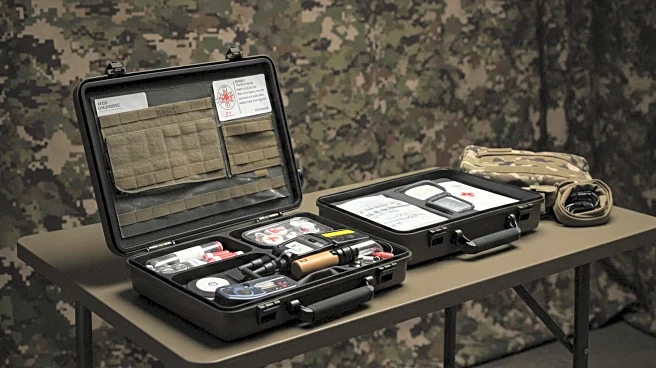What is the story about?
What's Happening?
The U.S. Army Medical Command (MEDCOM) is examining lessons from Ukraine's innovative medical strategies during its ongoing conflict with Russia. Ukraine has developed a decentralized network of underground medical facilities to withstand attacks and provide continuous care. This approach includes 'stabilization points' near front lines, offering advanced trauma management and emergency surgery. The strategy has improved casualty survival rates and preserved medical capacity amidst widespread destruction. MEDCOM is considering adopting similar models to enhance its medical sustainment capabilities in large-scale combat operations (LSCO), particularly in challenging environments like the Indo-Pacific and Europe.
Why It's Important?
The adaptation of Ukraine's medical strategies could significantly enhance the U.S. military's ability to sustain forces and save lives in future conflicts. The focus on prolonged field care and collaboration with private industry for rapid resource procurement addresses the limitations of traditional casualty care approaches. Implementing these lessons could improve resilience against evolving threats, such as drone warfare, and ensure medical infrastructure can withstand attacks. The potential adoption of underground facilities and decentralized medical networks represents a paradigm shift in battlefield medicine.
What's Next?
MEDCOM may prioritize investments in dispersed, hardened medical facilities and advanced training for medics in prolonged care. Streamlining acquisition processes to leverage commercial innovation is crucial for rapid adaptation. The implementation of these strategies will require careful site selection and collaboration with private industry. The U.S. military must overcome challenges related to geological constraints and operational security to successfully integrate these lessons into its medical sustainment strategies.
Beyond the Headlines
The examination of Ukraine's medical strategies highlights the importance of adapting military practices to the realities of modern warfare. The focus on decentralized medical networks and collaboration with private industry could lead to long-term shifts in how the U.S. military approaches medical sustainment in combat operations.
















